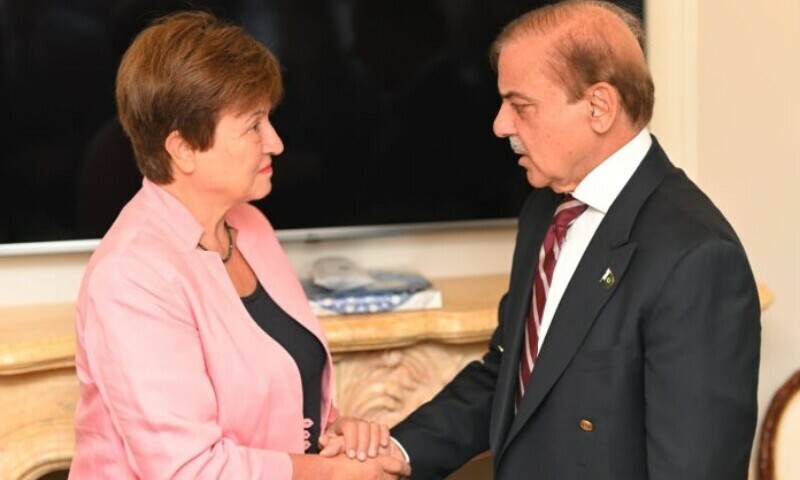Kristalina Georgieva, Managing Director (MD) of the International Monetary Fund (IMF), has asked the Pakistani government to shift the subsidies to those people only who “need it”.
Speaking to an international broadcaster on Sunday, Kristalina Georgieva said that her “heart goes to the people of Pakistan” as they had been “devastated by the floods” that affected one-third of the population of the country.
Pakistan is confronting an acute economic crisis and seeking IMF help. The Fund's chief Kristalina Georgieva speaks to DW at the Munich Security Conference. pic.twitter.com/0VLZHlyL2W
— DW Asia (@dw_hotspotasia) February 17, 2023
She said that the IMF was asking Pakistan for two steps: tax revenues, those who can and those that are making good money, public sector, and private sector should contribute to the economy; and the fairer distribution of the pressure by moving subsidies only towards the people who really need it.
“It should not be like the wealthy benefit from subsidies. It should be the poor who benefit from them,” she added.
Govt jacks up GST to 18% on IMF demand
“What we are asking for are steps Pakistan needs to take to be able to function as a country and not to get into a dangerous place where its debt needs to be restructured,” she said.
Her statement comes just days after the technical-level team of the IMF left Pakistan after ten days without striking a staff-level agreement (SLA) with Islamabad.
At the conclusion of the discussions, Pakistan agreed to implement the Memorandum of Economic and Financial Policies (MEFP), which contained policy suggestions by the IMF. Officials still hoped that the staff-level agreement could be reached soon.
There was a broad consensus with regard to leaving the rupee value to be determined by the market forces, lifting the restrictions on the imports and allowing the already imported goods to be cleared.
Also, the power tariff was to be increased, and new taxes were imposed to pave the way for the deal. However, because of the severity of the economic crisis, every agreed measure would be tough on an overwhelming majority of the Pakistani people.










